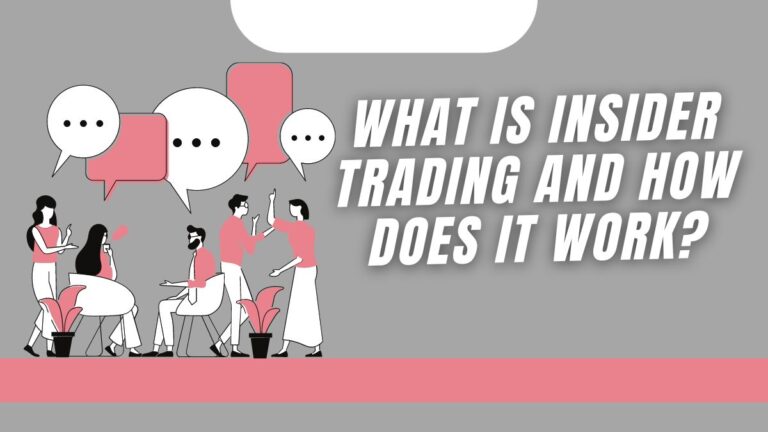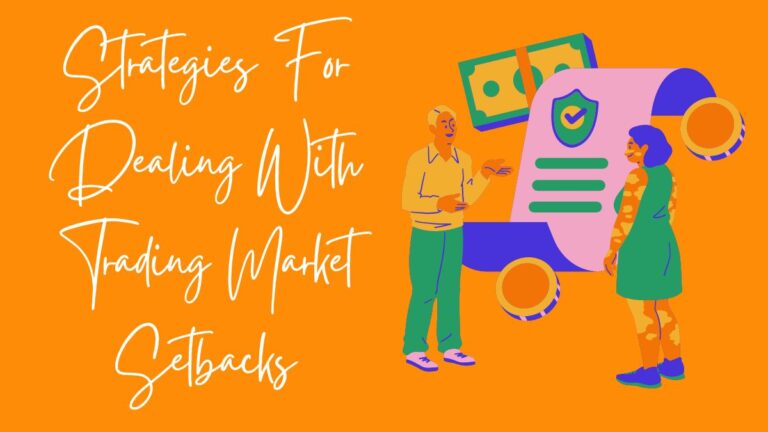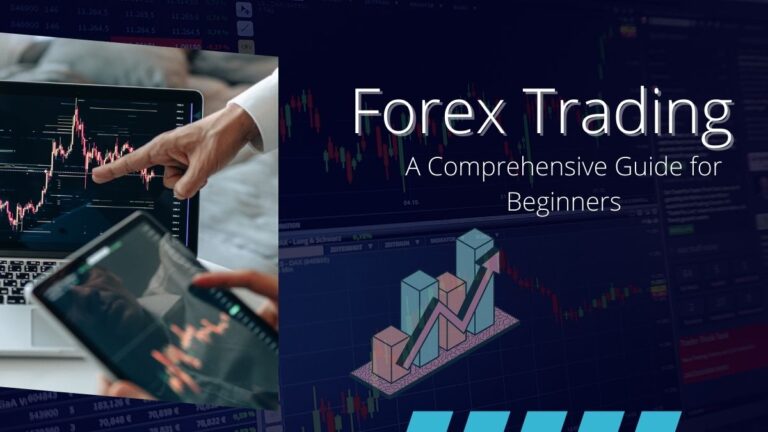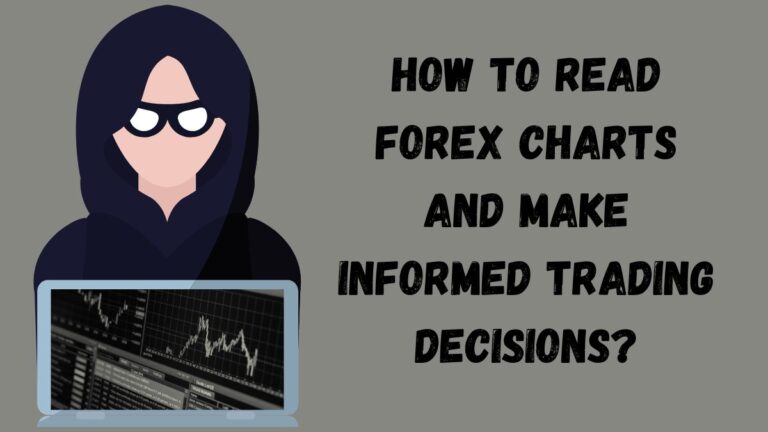Exploring the Profit Potential Of Forex Trading: A Comprehensive Analysis

Are you ready to dive into the exciting world of Forex trading? Buckle up, because we’re about to embark on a comprehensive analysis that will reveal the extraordinary profit potential this global market holds. Whether you’re an aspiring trader or simply curious about how ordinary individuals can make substantial gains in the Forex arena, this blog post has got you covered.
Join us as we explore the ins and outs of currency trading, unraveling strategies, tips, and insider secrets that could catapult your financial future to new heights. Get ready for a thrilling journey through numbers, charts, and endless possibilities – it’s time to unlock the profit potential of Forex trading like never before!
Table of Contents
What is Forex Trading?
Forex trading is the act of buying and selling currencies on the foreign exchange market. The foreign exchange market is a global decentralized market for the trading of currencies. This means that forex traders are able to trade currency pairs from all over the world. The forex market is open 24 hours a day, 5 days a week.
Forex trading is often done through brokers who offer their services to traders. These brokers provide access to the forex market and allow traders to buy and sell currencies. Brokers may also offer other services, such as advice on currency trading strategies and analysis of economic data.
The goal of forex trading is to make money by buying and selling currencies. Currencies are traded in pairs, with each currency being traded against another. For example, the EUR/USD pair is the Euro against the US Dollar. When buying a currency pair, you are essentially buying one currency and selling the other. The price of a currency pair is always quoted in terms of one currency against another.
In order to profit from forex trading, you need to understand how exchange rates work. Exchange rates represent the value of one currency in terms of another currency. They are constantly changing, influenced by economic indicators such as inflation, interest rates, and political stability. When you buy a currency pair, you are effectively betting that the value of one currency will increase relative to the other. If your prediction comes true, you will make a profit; if not, you will incur a loss.
Different Profit Opportunities in Forex Trading
Forex trading offers a number of different profit opportunities. The most common is simply exchanging one currency for another at a higher rate to make a profit.
Another opportunity is to take advantage of the interest rate differential between two currencies. For example, if you buy euros with US dollars and interest rates in the eurozone are higher than in the United States, you will earn more on your investment over time. This is known as carry trade.
Still another possibility is to speculate on the future direction of exchange rates using derivatives such as forwards, futures, or options. These instruments can provide leveraged exposure to the underlying asset, magnifying both profits and losses.
Finally, traders can take advantage of arbitrage opportunities. This occurs when one currency is traded for another and then quickly resold at a higher rate to exploit market inefficiencies. However, these opportunities are rare as most exchange rates are determined by efficient markets.
Strategies to Decrease Risks of Loss in Forex Trading
In Forex trading, loss is always a possibility. However, there are steps you can take to minimize your risks and losses. Below are some strategies you can use to decrease the risks of loss in Forex trading:
- Use stop-loss orders: A stop-loss order is an order that closes out your position at a set price below the current market price. This will help limit your losses if the market price falls.
- Manage your risk: Be sure to never risk more than you can afford to lose. Proper money management is key to successful Forex trading.
- Use a demo account: Before investing any real money in Forex trading, be sure to practice first with a demo account. This will allow you to get a feel for the market and learn how to trade without risking any real money.
- Diversify your portfolio: Don’t put all your eggs in one basket. Invest in different currency pairs, so that if one goes against you, you have other positions that may offset your loss.
- Have realistic expectations: Like with anything else in life, forex trading success takes time and patience. Don’t expect to make millions overnight – it just doesn’t happen that way! Be prepared for both ups and downs, and don’t let emotions influence your decisions.
- Have a trading plan: Having a trading plan before entering the market will help you stay on track and avoid making impulsive decisions. Your trading plan should include entry and exit points, risk management strategies, stop losses, and when to take profits.
- Take advantage of leverage: Leverage is a double-edged sword – it can provide huge profits but also large losses. Use leverage with caution – make sure you understand how it works and never risk more than you can afford to lose!
By following these strategies, you can help decrease the risks of loss in Forex trading. However, it’s important to remember that there is no sure-fire way to guarantee profits in the Forex market – risks and losses will always be present. With the right knowledge and discipline, however, these risks can be minimized.
Analysing the Long Term Profitability of Forex Trading
Forex trading is often seen as a way to make quick and easy profits. However, like any other form of trading, it carries with it certain risks. Before you start forex trading, it is important to understand the potential profitability of the activity and the factors that can affect your bottom line.
To get an idea of the potential profitability of forex trading, we need to look at the pips. A pip is the smallest unit of price movement in a currency pair and is typically equal to 0.0001. For example, if EUR/USD moves from 1.2300 to 1.2350, that would be a 50 pip move.
The value of a pip can vary depending on the size of your trade (known as your “lot size”). If you are trading a standard lot size of 100,000 units, then each pip would be worth $10. But if you are only trading 10,000 units (a mini lot), then each pip would be worth just $1.
Now that we know what a pip is and how its value can vary, let’s look at how pips can affect your bottom line in forex trading.
There are two main ways to make money through forex trading: by appreciation and by depreciation. Appreciation happens when the value of your currency increases relative to another currency. For example, if you bought EUR/USD at 1.2300 and it later went up to 1.2350 , this would represent a 50 pip move in your favor. If you were trading a standard lot size of 100,000 units, then your profit from this single trade would be $500!
On the other hand, depreciation happens when the value of your currency decreases relative to another currency. In the above example, if EUR/USD moved down from 1.2300 to 1.2250, this would represent a 50 pip move against you. This time, if you were trading a standard lot size of 100,000 units, then your loss on this single trade would be $500!
So as you can see from these examples, even just a small price movement of 50 pips can result in either profits or losses of several hundred dollars – depending on which direction the market moves (up or down) and also on the size of your position (lot size). As such, it is important to understand how pips work and to manage risk accordingly.
In terms of long-term profitability in forex trading, there are many factors to consider. Risk management is key because even if you have good analysis skills and Winning Strategies in place, it won’t matter much if you aren’t able to manage risk effectively. Patience is also important since it takes time for good trades to develop and mature. Having the right attitude towards trading and looking at it as a long-term investment rather than a short-term gamble can also help you be more successful in your trading business.
Finally, developing a deep understanding of the foreign exchange markets and being able to interpret the data effectively are essential when it comes to having long-term success in this business.
Finding the Right Investment Vehicle for Your Goals
When you’re ready to start investing in the forex market, one of the first things you’ll need to do is choose the right investment vehicle for your goals. There are a variety of different options available, and it’s important to select the one that best suits your needs.
If you’re looking for short-term gains, then you’ll need to find an investment vehicle that allows you to capitalize on volatility. The most popular option for this is speculative trading, which involves taking positions in currencies that are expected to appreciate in value. However, this approach can also be risky, so it’s important to do your research and understand the risks involved before you begin.
If you’re more interested in long-term profits, then you’ll need to find an investment vehicle that provides stability and consistent returns. One option is investing in currency pairs that have a history of appreciating over time. Another option is investing in currency funds, which pool together a group of investors’ capital and invest it in a basket of different currencies. This approach can provide diversification and help mitigate some of the risk involved in forex trading.
Whatever investment vehicle you choose, make sure that it aligns with your goals and risk tolerance. With a little bit of research, you can find the right option for you and start reaping the profits of forex trading.

Tips for a Successful Forex Trade
Forex trading can be a great way to make a profit, but it’s important to approach it with a solid plan and realistic expectations. Here are a few tips to help you get started on the right foot:
- Do your homework. Before you begin trading, take some time to research the market and understand how it works. There’s a lot of information out there, so don’t feel like you need to learn everything at once. Just focus on getting a general understanding of how forex trading works before you start risking your own money.
- Have a plan. It’s important to know what you’re hoping to achieve with your forex trading before you start putting any money at risk. Think about your goals and develop a strategy for how you’re going to achieve them. Once you have a plan in place, stick to it!
- Be patient. Rome wasn’t built in a day, and neither is a successful forex trading career. It takes time to learn the ins and outs of the market, so don’t expect to make huge profits overnight. Be patient and consistent with your trading, and over time you should see your account grow steadily.
- Manage your risk. One of the most important aspects of successful forex trading is managing your risk properly . Never trade more than you can afford to lose, and always use stop-loss orders to limit your downside risk . By doing this, you’ll protect yourself from taking on too much risk and losing more money than you can afford.
- Stay informed. Keep up to date with the latest news and developments in the forex market. This will help you stay one step ahead of the markets and make sure you’re ready to take advantage of any movements in currency prices.
- Get help. If you’re still feeling unsure about trading forex, consider getting professional help from an experienced forex broker or market analyst. They can offer invaluable advice and guidance as you learn the ropes of forex trading. However, keep in mind that no one can guarantee success on the markets, so make sure to do your own due diligence before taking any advice from someone else.
By following these tips, you’ll be well on your way to trading forex successfully.
Alternatives to Forex Trading
Although forex trading may offer the potential for large profits, it is not the only way to profit from currency movements. There are a number of alternatives to forex trading, including:
- Currency ETFs: Exchange-traded funds that track a basket of currencies can offer an easy and low-cost way to gain exposure to the forex market.
- Futures: Currency futures are another popular alternative to spot forex trading, and they trade on regulated exchanges.
- Options: Options on currency futures offer yet another way to trade currencies, and they can be used to hedge against currency risk or speculate on future movements.
- Spot market: The spot market is the underlying market for all other currency derivatives, and it is where most retail forex traders actually trade.
- OTC market: The over-the-counter market is where banks and other institutions trade currencies, and it is generally not accessible to retail traders.
- Spread betting: Many forex brokers offer spread betting services, which allow traders to bet on the direction of currency pairs without actually owning the underlying currencies.
- Cryptocurrencies: Cryptoassets such as Bitcoin and Ethereum offer another currency trading alternative that has been gaining in popularity in recent years.
- Stocks and bonds: Stocks and bonds denominated in foreign currencies offer yet another way to gain exposure to currency movements, without actually trading the underlying currency pairs.
Finally, it is important to remember that no matter which forex trading alternative you choose, always be sure to practice proper risk management and diversification to reduce your risk of losses.
Conclusion
In conclusion, a comprehensive exploration of the profit potential of forex trading reveals that it has both its risks and rewards. Understanding these risks and rewards is essential for success in any form of currency trading. It requires making careful decisions regarding when to buy, sell, and hold currencies as well as having an understanding of the current economic trends in order to make informed investments. With proper risk management techniques, knowledge of how to read charts and analyze signals from technical indicators, knowledgeable traders can indeed reap sizable profits from their forex trades over time.






